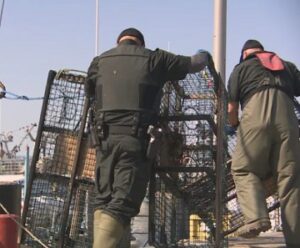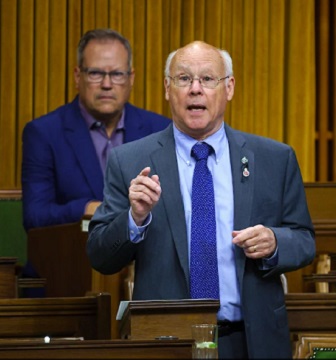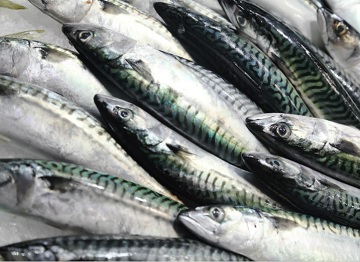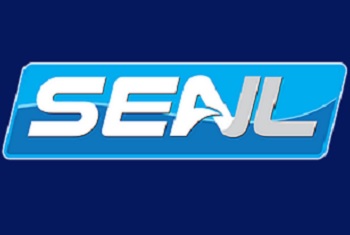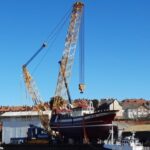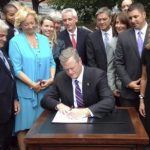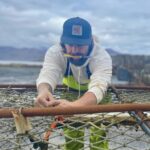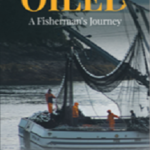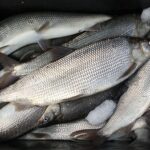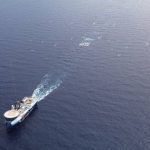Tag Archives: Department of Fisheries and Oceans
“A bucket and a net, and you’re in business.” Looming tensions in Maritime eel fishery
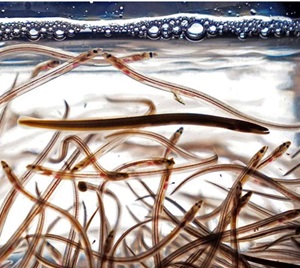 Commercial harvesters of baby eels in the Maritimes say there’s little hope the poaching and violence that forced the closure of the lucrative fishery last season will subside in 2024. The federal Department of Fisheries and Oceans closed the fishery for the tiny, translucent fish known as elvers on April 15 after reports of violence related to unauthorized fishing. There were accusations of assault and even shots fired along coastal rivers in parts of Nova Scotia and New Brunswick. The increased illegal activity comes as demand grows for the young eels, which are sold live to aquaculture operations in Asian markets such as China and Japan, where they are grown for food. Prices had reached as high as $5,000 per kilogram in 2022, partly because sources for the fish species in Europe and Asia had begun to dry up. more, >>click to read<< 06:02
Commercial harvesters of baby eels in the Maritimes say there’s little hope the poaching and violence that forced the closure of the lucrative fishery last season will subside in 2024. The federal Department of Fisheries and Oceans closed the fishery for the tiny, translucent fish known as elvers on April 15 after reports of violence related to unauthorized fishing. There were accusations of assault and even shots fired along coastal rivers in parts of Nova Scotia and New Brunswick. The increased illegal activity comes as demand grows for the young eels, which are sold live to aquaculture operations in Asian markets such as China and Japan, where they are grown for food. Prices had reached as high as $5,000 per kilogram in 2022, partly because sources for the fish species in Europe and Asia had begun to dry up. more, >>click to read<< 06:02
Nova Scotia MP says he faced death threats as Maritime elver fishery descended into lawlessness
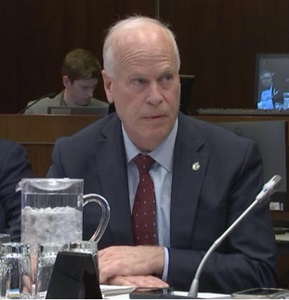 MPs in Ottawa heard “alarming” accounts Thursday of failed Canadian government efforts to thwart the black-market fishery for baby eels, or elvers, earlier this year. It included a claim that 25-tonnes of the tiny, translucent eels were flown out of Canada in illicit shipments, part of an organized crime to meet an “insatiable appetite” in China where they are grown for food. “I had many constituents whose properties were being defiled, destroyed as poachers, parked and utilized their things. I had single mothers threatened by people. I had death threats, as did my wife during this time,” said South Shore-St. Margarets Conservative MP Rick Perkins. more, >>click to read<< 06:50
MPs in Ottawa heard “alarming” accounts Thursday of failed Canadian government efforts to thwart the black-market fishery for baby eels, or elvers, earlier this year. It included a claim that 25-tonnes of the tiny, translucent eels were flown out of Canada in illicit shipments, part of an organized crime to meet an “insatiable appetite” in China where they are grown for food. “I had many constituents whose properties were being defiled, destroyed as poachers, parked and utilized their things. I had single mothers threatened by people. I had death threats, as did my wife during this time,” said South Shore-St. Margarets Conservative MP Rick Perkins. more, >>click to read<< 06:50
Canada’s biggest lobster fishery on notice after Right Whale entanglement in Nova Scotia gear
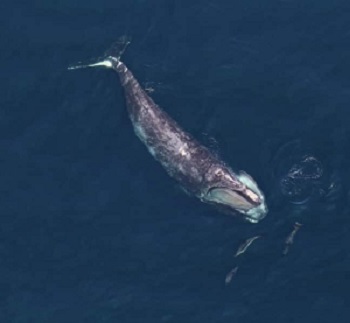 The entanglement of a North Atlantic right whale in Canadian lobster gear earlier this year will increase scrutiny this season on the lucrative southwestern Nova Scotia lobster fishery. In order to be certified as sustainable, the fishery must now prove its actions will not hinder the recovery of the critically endangered species. “This means the fishery has to demonstrate in collaboration with [the Department of Fisheries and Oceans that it’s going to strengthen its strategy to mitigate impacts on right whales,” says Kurtis Hayne, program director for the Marine Stewardship Council (MSC) in Canada. To satisfy the conditions, the Lobster Council of Canada, on behalf of industry and the Department of Fisheries and Oceans (DFO), have developed an action plan to increase overflights in lobster fishing area 33 and increase data collection, says Lobster Council executive director Geoff Irvine. more, >>click to read<< 06:39
The entanglement of a North Atlantic right whale in Canadian lobster gear earlier this year will increase scrutiny this season on the lucrative southwestern Nova Scotia lobster fishery. In order to be certified as sustainable, the fishery must now prove its actions will not hinder the recovery of the critically endangered species. “This means the fishery has to demonstrate in collaboration with [the Department of Fisheries and Oceans that it’s going to strengthen its strategy to mitigate impacts on right whales,” says Kurtis Hayne, program director for the Marine Stewardship Council (MSC) in Canada. To satisfy the conditions, the Lobster Council of Canada, on behalf of industry and the Department of Fisheries and Oceans (DFO), have developed an action plan to increase overflights in lobster fishing area 33 and increase data collection, says Lobster Council executive director Geoff Irvine. more, >>click to read<< 06:39
Authorities crack down on commercial lobster fishery inside Halifax harbour
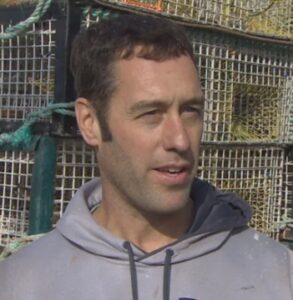 Lobster fishing inside Halifax harbour will be sharply restricted when the season opens next week as federal authorities move to enforce existing prohibitions. The Department of Fisheries and Oceans will not allow traps to be set within 300 metres of any wharf, pier or boat structure inside the harbour. The restriction was included in DFO lobster fishing licence conditions for the first time this year at the request of the Halifax Port Authority, which has the same rule on the books. That’s bad news for Craig Hartlen, a lobster fisherman based in Eastern Passage, a small port on the outer edge of the harbour. >>click to read<< 08:11
Lobster fishing inside Halifax harbour will be sharply restricted when the season opens next week as federal authorities move to enforce existing prohibitions. The Department of Fisheries and Oceans will not allow traps to be set within 300 metres of any wharf, pier or boat structure inside the harbour. The restriction was included in DFO lobster fishing licence conditions for the first time this year at the request of the Halifax Port Authority, which has the same rule on the books. That’s bad news for Craig Hartlen, a lobster fisherman based in Eastern Passage, a small port on the outer edge of the harbour. >>click to read<< 08:11
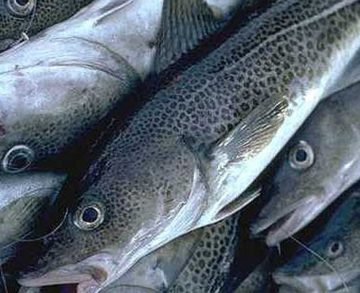
The NLGIDC are pleased with DFO’s revised assessment Model for Northern Cod
The Newfoundland and Labrador Groundfish Industry Development Council (NLGIDC) are pleased that The Department of Fisheries and Oceans (DFO) has implemented a revised model for assessing the 2J3KL cod stock. This model now utilizes data back to 1954 and shows that the 2J3KL cod stock is out of the critical zone and into the cautious zone of the Precautionary Approach (PA) Framework. In fact, the new model indicates the stock has been in the cautious zone since 2016. Previously the model only used data back to 1983. “The NLGIDC and other groups have been seeking changes to the stock assessment model for a number of years,” says Jim Baird, the Chair of the NLGIDC. >>click to read the Press Release<< 14:51
Cost of Canada’s new flagship ocean science vessel jumps a further $300M
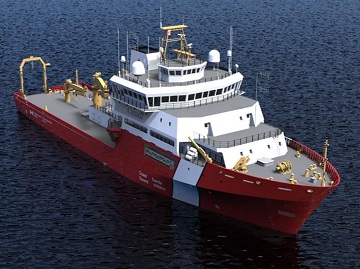 The budget for Canada’s new flagship ocean research ship increased 28 per cent this year jumping from $995 million to $1.28 billion. Construction of the offshore oceanographic science vessel is underway at the Seaspan Shipyards in North Vancouver, B.C., as part of the National Shipbuilding Strategy.It will replace the decommissioned Canadian Coast Guard Ship Hudson — now at a wreckers yard — to provide scientific and ocean mapping missions in Atlantic Canada. The offshore oceanographic science vessel is the key platform to track climate change in the Atlantic Ocean and Gulf of St Lawrence. Delivery is expected in 2025 and the ship will be based in Dartmouth, N.S.>>click to read<< 11:53
The budget for Canada’s new flagship ocean research ship increased 28 per cent this year jumping from $995 million to $1.28 billion. Construction of the offshore oceanographic science vessel is underway at the Seaspan Shipyards in North Vancouver, B.C., as part of the National Shipbuilding Strategy.It will replace the decommissioned Canadian Coast Guard Ship Hudson — now at a wreckers yard — to provide scientific and ocean mapping missions in Atlantic Canada. The offshore oceanographic science vessel is the key platform to track climate change in the Atlantic Ocean and Gulf of St Lawrence. Delivery is expected in 2025 and the ship will be based in Dartmouth, N.S.>>click to read<< 11:53
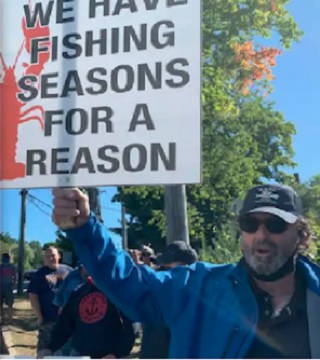
RUBENSTEIN: The endless Maritime lobster war
Nova Scotia has a series of historic treaties with the Mi’kmaq dating back to the 1720s, 150 years before any of the numbered treaties in the rest of Canada. These agreements are known as the Peace and Friendship Treaties and were designed to reduce warfare and to regulate trade between the indigenous and settler populations. While these treaties contained few monetary and no land transfer provisions, they guaranteed hunting, fishing and land-use rights for the descendants of the indigenous signatories. These Peace and Friendship Treaties remain in effect today but were regularly but improperly denied or ignored by the Crown during much of Nova Scotia’s past. Today, those ignoring the treaties and court rulings stemming from them are the Mi’kmaq themselves. >>click to read<< 10:27
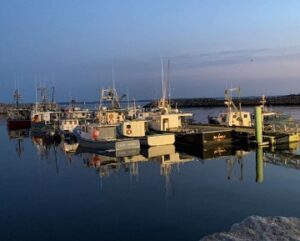
DFO calls for calm in St. Mary’s Bay as enforcement continues
The Department of Fisheries and Oceans calling for safety and patience in St. Mary’s Bay. Tensions have been rising once again due to out of season lobster fishing taking place. In a statement, DFO says they’re committed to a renewed relationship with Indigenous peoples, so they can exercise their Treaty rights to fish. They say many are exercising that right through the Food, Social and Ceremonial fishery, authorized by DFO. But they say it has to comply with the Fisheries Act, and they are seizing gear and laying charges for those who don’t follow the rules. DFO has been getting flack from local commercial fishers and opposition leaders, demanding that they do more to enforce the rules. >>click to read<< 08:43
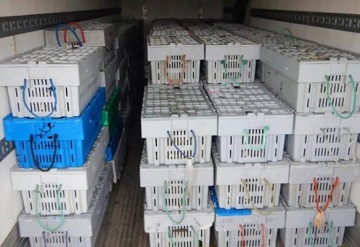
2 Nova Scotians arrested after crates of live lobster seized in N.B.
Two people from Saulnierville, N.S., were arrested and released Wednesday for Fisheries Act infractions following the seizure of live lobster in Moncton, N.B. Fisheries officers seized 110 crates containing about 8,000 lobster, the Department of Fisheries and Oceans posted on social media. Officials returned the lobster to Nova Scotia and released them back into the ocean near Meteghan, N.S., on St. Marys Bay. The department did not release any further information about who was arrested or where the lobster were originally harvested. >>click to read<< 15:28
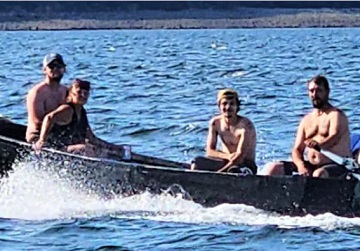
Nova Scotia fishers, Indigenous stakeholders call for more dialogue amid violence
As Nova Scotia RCMP continues to investigate violence on a wharf in St. Mary’s Bay, stakeholders on both sides are calling for more conversation instead of violence. The Maritime Fishermen Union called on all levels of government, including fishers on both sides to get to the table. “Our largest concern is the conservation of the stock on St. Mary’s Bay,” Ruth Inniss, a fisheries adviser with the Maritime Fishermen Union, said. “We tried to bring all the players of the problem to the table to solve the problem. The problem clearly hasn’t been solved.” Video, >>click to read<< 09:04
Cape Breton boatbuilders help DFO to face commercial, climate change challenges
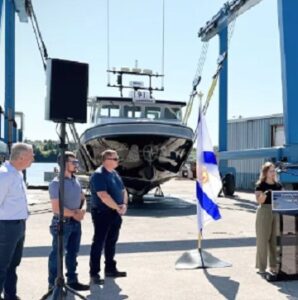 The federal Department of Fisheries and Oceans is having four new patrol boats built in rural Cape Breton to address some of the challenges faced by fisheries enforcement officers. The new boats are larger than the existing ones to better deal with the effects of climate change, larger commercial vessels and heavier fishing gear. Once completed, the boats will be used in the Atlantic region. “As we’ve seen in the last couple of years, climate change is a huge thing … and adverse weather conditions are getting more and more frequent and our officers just don’t take a day off because it’s really bad weather-wise,” said Scott Phillips, DFO’s eastern Nova Scotia area chief of conservation and protection. Photos, >click to read< 17:27
The federal Department of Fisheries and Oceans is having four new patrol boats built in rural Cape Breton to address some of the challenges faced by fisheries enforcement officers. The new boats are larger than the existing ones to better deal with the effects of climate change, larger commercial vessels and heavier fishing gear. Once completed, the boats will be used in the Atlantic region. “As we’ve seen in the last couple of years, climate change is a huge thing … and adverse weather conditions are getting more and more frequent and our officers just don’t take a day off because it’s really bad weather-wise,” said Scott Phillips, DFO’s eastern Nova Scotia area chief of conservation and protection. Photos, >click to read< 17:27
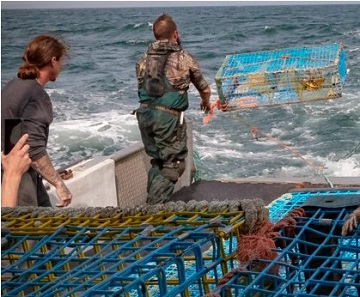
Sipekne’katik First Nation sues federal government for seizing lobster traps
The Sipekne’katik First Nation in Nova Scotia is suing the federal government over treaty right infringement after officers with the Department of Fisheries and Oceans seized lobster traps belonging to its band members. Sipenkne’katik alleges that DFO fishery officers hauled lobster traps belonging to two of its band members from waters in St. Mary’s Bay near Saulnierville, N.S. July 18-19. In a statement of claim that was filed at Nova Scotia Supreme Court in Halifax on July 24, Sipekne’katik states that its members have a treaty right to fish for a moderate livelihood which “means they have a right to sell the lobster they catch.” >click to read< 11:34
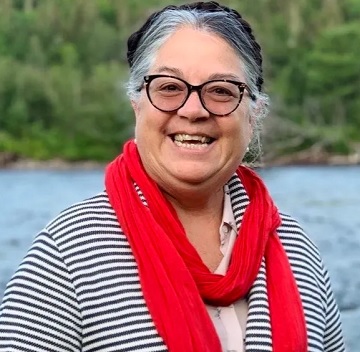
Who is Canada’s newest fisheries minister and what tasks lie ahead for Diane Lebouthillier?
With a marine coastline that measures 243,042 kilometers—the most of any country in the world—Canada’s fishing grounds and Coast Guard service areas touch the Atlantic, Pacific and Arctic Oceans. The mandate of the fisheries minister, as outlined on the Department of Fisheries and Oceans website, is wide-reaching and complex. Her department’s job is to protect Canada’s oceans and waterways and provide economic opportunities to Canadians and coastal communities. Drill down to local issues, however, and there are hundreds. Here’s a look at some of them. >click to read< 19:55
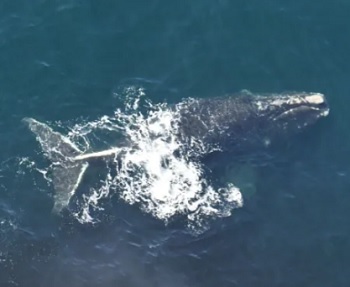
Whale detection shuts down major portion of Cape Breton snow crab fishery
The detection of an endangered North Atlantic right whale in the Gulf of St. Lawrence has forced the temporary closure of a major portion of the snow crab fishery off western Cape Breton. It comes just days after the season opened. The whale was detected by an acoustic sensor. Fishermen have until 5 p.m. Monday to move their gear out of a large closure zone. Many had just dropped their pots. The closure is set for 15 days. The Department of Fisheries and Oceans posted a notice of the closure to harvesters on Friday. It affects about 140 licence holders in what is known as Crab Fishing Area 19. >click to read< 17:22
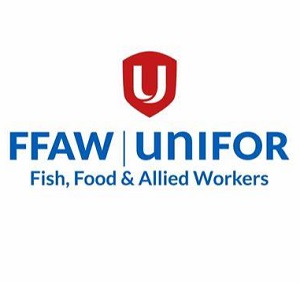
ASP Retaliatory Clawbacks Harm Crab Resource
FFAW-Unifor is calling for the federal Department of Fisheries and Oceans as well as the provincial departments responsible for seafood processing regulation to take action against companies who are throwing environmental management protections out in an effort to retaliate monetarily against snow crab harvesters. Specifically, companies have unilaterally thrown out a longstanding conservation rule that states a 20% tolerance limit on under 4” snow crab size and implemented a 5% tolerance limit. The actions are the latest in a string of bad-faith business tactics and proof that federal and provincial intervention is required to ensure companies operate in a way that protects the important snow crab resource and the communities that rely on it. >click to read the press release< 12:52
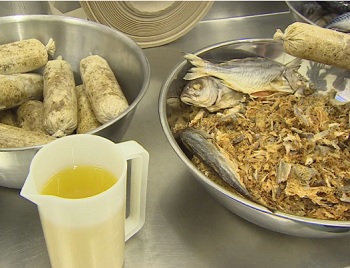
P.E.I. bait company puts seal meat plans on ice, fearing U.S. fallout
Bait Masters Inc. started producing bait sausages in its $1.4-million facility in Nine Mile Creek in April 2021, using a mix of fish, fish oil and other organic matter inside a biodegradable casing. In March, the company did a test run of sausages using a seal-mackerel mix and the results were promising. However, as word spread that the bait would contain seal byproducts, that triggered some red flags in the fishing industry because of U.S. rules around the seal harvest, laid out in the U.S. Marine Mammal Protection Act. Prevost received an email that was being circulated to people in the lobster industry, warning of the implications if seal were to be used in trap bait. Photos, >click to read< 07:29
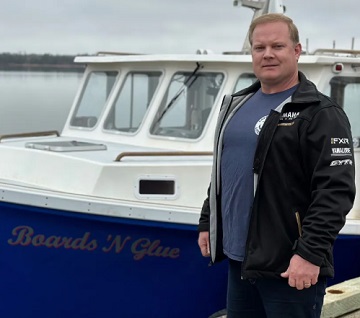
Right whale sighting shuts down lobster fishing section for at least 15 days
The Department of Fisheries and Oceans is asking lobster fishers to remove all gear in a portion of Lobster Fishing Area 24 within the next 96 hours due to the confirmed sighting of a North Atlantic right whale. The whale was at the 10 and 20 fathom line in LFA 24 off the Island’s northern coast, the P.E.I. Fishermen’s Association said in a release. Charlie McGeoghegan, chair of the P.E.I. Lobster Marketing Board, said the early closure is “very disappointing.” “It’s the heart of our season.” >click to read< 11:36

3 Mi’kmaw First Nations excited about moderate livelihood fisheries
Three Mi’kmaw communities are celebrating their dramatically increased roles in the lobster fishery around Cape Breton Island this spring. The Department of Fisheries and Oceans announced Tuesday it has renewed moderate livelihood understandings with Potlotek and We’koqma’q, and now Eskasoni has joined them. Eskasoni Chief Leroy Denny said he is excited because up to 70 fishers will now be out on the water hauling in traps and earning a living. “It’s a really good thing, a really very big deal for us,” he said. Under interim understandings, the bands will fish during the commercial season, which is open now around Cape Breton and closes in mid-July. >click to read< 10:31
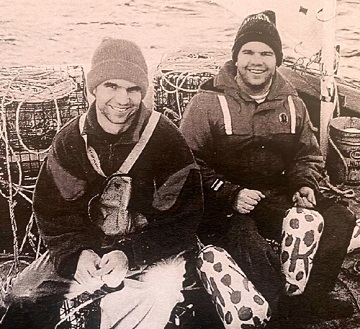
Licence technicality forces son of a Nova Scotia moonlighter lobster fisherman to move away
Mike Kaiser has fished lobster with his father, Dwayne, since he was little. Like many, he wants to carry on the legacy. On Tuesday, Mike Kaiser will move to Alberta to pick up work. He says he’d rather stay in Nova Scotia around his family, doing what his father did for nearly 50 years. But a policy that’s been around almost as long means Dwayne cannot pass on his licence to his son. He holds one of about 70 “moonlighter” licences granted years ago to part-time fishermen in Nova Scotia and New Brunswick. Those licences die with them. >click to read< 11:09
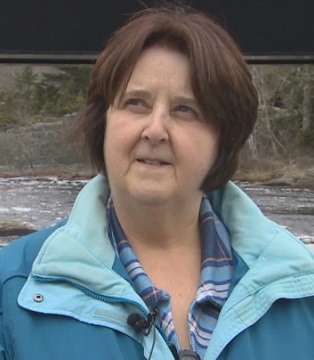
Striking fishery officers stand aside as poaching continues for lucrative baby eels
“Our net should be here, not some illegal fisherman,” says Brenda Golden, a co-owner of Wine Harbour Fisheries. Golden is looking under the Liscomb River bridge where a fine mesh net supported by floats stretches into the black foamy water. Hoping to have the net removed, Golden’s daughter reported it to the local Department of Fisheries and Oceans on Tuesday. Fisheries officials did not provide a response when asked about this incident. Nor to questions about the impact of the ongoing Public Service Alliance of Canada strike on its ability to rein in widespread illegal harvesting. >click to read< 07:15
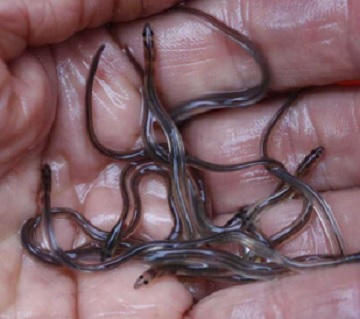
Maritime baby eel fishers pan federal decision to close fishery over safety concerns
Ottawa’s decision to shut down the lucrative but contentious baby eel fishery in the Maritimes has effectively ended the 2023 season, says a commercial licence holder in southwestern Nova Scotia. Brian Giroux, of Shelburne Elver, a fishing co-op that employs 39 people, said the mandatory 45-day closure announced by the Department of Fisheries and Oceans on Saturday will largely run out a season that normally wraps up in early June. “Illegal activities that (DFO) failed to control have taken away the fishing from the licensed and legal fishing,” Giroux said in an interview Monday. >click to read< 10:32
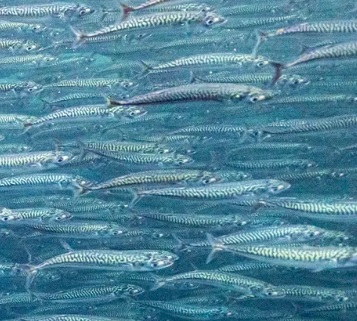
‘The people’s fish’: Atlantic mackerel stocks have collapsed – can a moratorium bring them back?
Canada’s Atlantic mackerel population is a shadow of what it once was, and its decline threatens the well-being of the people who depend on it. Mackerel supports one of Atlantic Canada’s top recreational fisheries, and one of its oldest commercial fisheries. The fish is also used for bait, and it has an important place in Indigenous cultures. The same migratory stock supports recreational and commercial fisheries in the U.S. Last March, the federal Department of Fisheries and Oceans closed Canada’s commercial and bait mackerel fisheries for one year and placed daily personal limits on the recreational fishery, to give the population time to rebound. But the U.S. fishery remains open, albeit with a reduced quota. Next week, federal Fisheries Minister Joyce Murray will decide whether to reopen the Canadian fishery. The DFO’s latest studies have found no sign of recovery in the mackerel stock. Photos, >click to read< 13:09
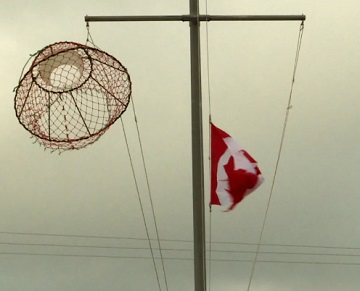
Crab harvesters take protest inside St. John’s hotel as price-setting meetings continue
Newfoundland and Labrador’s crab fishermen resumed their protest Wednesday, calling for a quota increase and changes to the federal government’s fisheries management. Dozens of harvesters descended on a Fisheries and Oceans Canada office in the east end of St. John’s early Wednesday morning, with some using their vehicles to block traffic from coming in or out. Some used symbols of the fishery to protest, like a crab pot placed on the building’s flagpole. Fisherman Jason Sullivan said he and his colleagues are calling for changes to the precautionary approach framework that separates the inshore fishery of Zone 3L from the offshore fishery. >click to read< 16:44
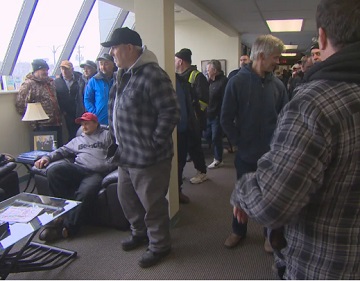
Snow crab fishermen protest quota allocations on first day of price-setting
About 100 snow crab fishermen descended Monday on a St. John’s hotel, where officials had begun setting crab prices for the season, to protest a management system and quotas they say need an overhaul. The protest, at the Sheraton in downtown St. John’s, centred on a new precautionary approach designed to protect stocks, implemented in December by the Department of Fisheries and Oceans, which manages inshore and offshore crab stocks differently. Bay Bulls fisherman Jason Sullivan says the change leaves them with less to catch. “These guys are at 30 per cent of their original quotas, and they need an increase,” Sullivan said Monday. “They’re catching their quotas in one single day.… . >click to read< 21:42
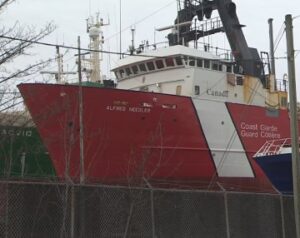
With a coast guard research vessel facing decommission, N.L.’s fisheries union has concerns
On Thursday, the Canadian Coast Guard announced the research vessel CCGS Alfred Needler is being decommissioned after 40 years in service due to “significant mechanical and structural failures” in late 2022 and early 2023. “The coast guard determined that the ship was beyond repair and further investment would not allow it to return to reliable and safe service,” Gary Ivany, assistant commissioner of the Canadian Coast Guard’s Atlantic region, said Friday. The decommissioning causes problems for DFO scientists, whose job is it to determine how much shrimp and cod should be fished each year. >click to read< 12:09







